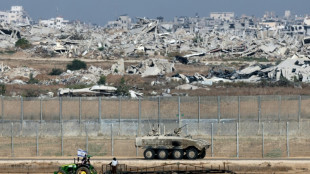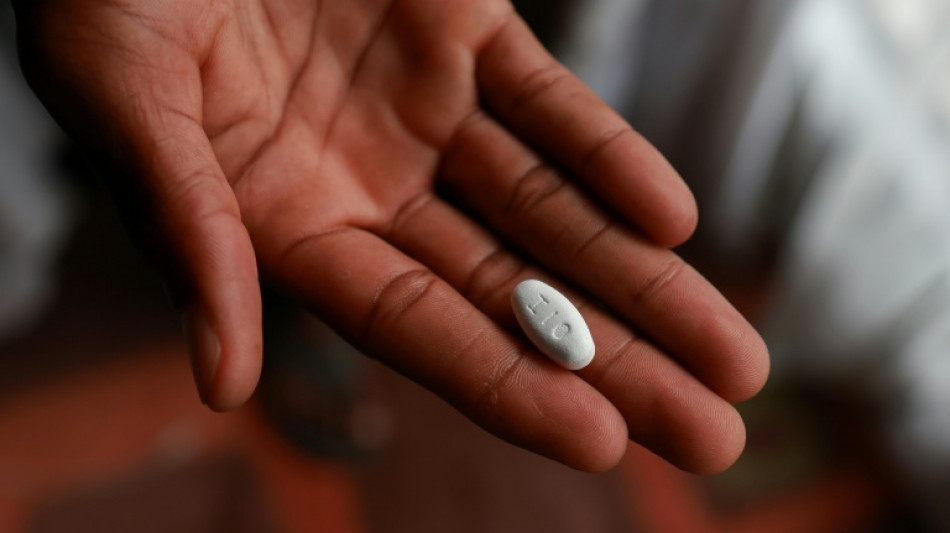
-
 Sri Lanka's Wellalage told of dad's death moments after win
Sri Lanka's Wellalage told of dad's death moments after win
-
Norris on top ahead of Piastri in opening Baku practice

-
 Terland hat-trick fires Man Utd into Women's Champions League
Terland hat-trick fires Man Utd into Women's Champions League
-
Stars Tim Burton, Monica Bellucci announce separation
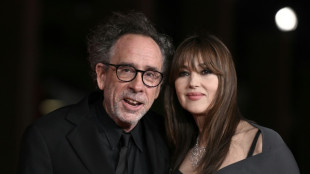
-
 What to look for in China and Europe's climate plans
What to look for in China and Europe's climate plans
-
India target record Asian Games medal haul as LA 2028 beckons
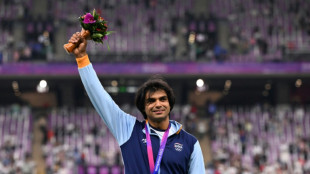
-
 Tracing the 'Green Sahara' in Chad's northern desert
Tracing the 'Green Sahara' in Chad's northern desert
-
Asian markets mostly drop ahead of Trump-Xi talks

-
 US comics slam 'censorship' after Kimmel pulled
US comics slam 'censorship' after Kimmel pulled
-
China's Xiaomi to remotely fix assisted driving flaw in 110,000 SU7 cars

-
 Brewing battle: coffee booms in tea-loving Kosovo
Brewing battle: coffee booms in tea-loving Kosovo
-
Dortmund on lookout for leaders as familiar cracks emerge

-
 BoJ holds interest rates but to sell funds in shift from easing policy
BoJ holds interest rates but to sell funds in shift from easing policy
-
Real Madrid aiming to stay perfect against impressive Espanyol

-
 Georgia's Niniashvili aims to stay 'crazy' at new club La Rochelle
Georgia's Niniashvili aims to stay 'crazy' at new club La Rochelle
-
Latinos, ex-military, retirees -- ICE hopefuls answer Uncle Sam's call

-
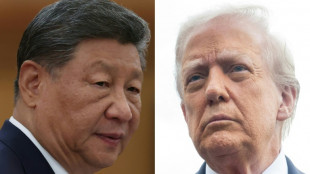 Trump hopes to settle TikTok's fate on Xi call
Trump hopes to settle TikTok's fate on Xi call
-
East Germany's empty towns try to lure people with 'trial living'

-
 Liverpool crave easy win in Merseyside derby as Arsenal seek Man City hat-trick
Liverpool crave easy win in Merseyside derby as Arsenal seek Man City hat-trick
-
Australia skipper Cummins says 'hopeful' he'll take part in Ashes

-
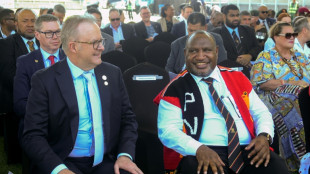 China warns Papua New Guinea over Australian defence deal
China warns Papua New Guinea over Australian defence deal
-
Australian state bans testing of illicit drugs
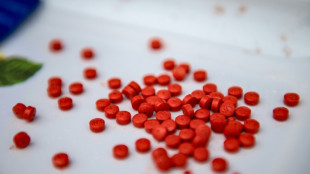
-
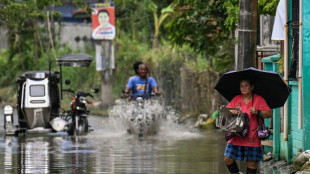 Philippines 'ghost' flood projects leave residents stranded
Philippines 'ghost' flood projects leave residents stranded
-
Asian markets fluctuate as focus turns to Trump-Xi, BoJ

-
 North Korea's Kim oversees drone test, orders AI development
North Korea's Kim oversees drone test, orders AI development
-
Kenya eye double gold on penultimate day of world championships
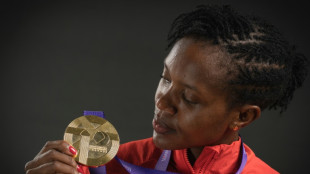
-
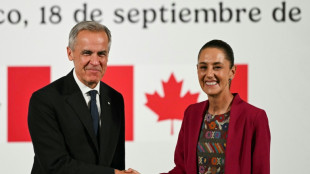 Canada, Mexico leaders agree to seek 'fairer' trade deal with US
Canada, Mexico leaders agree to seek 'fairer' trade deal with US
-
How did an Indian zoo get the world's most endangered great ape?
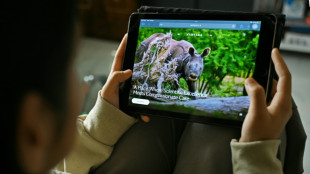
-
 Amid emotional retirement reveal, Kershaw focused on beating Giants
Amid emotional retirement reveal, Kershaw focused on beating Giants
-
Dodgers pitching icon Kershaw to retire after 18th MLB season

-
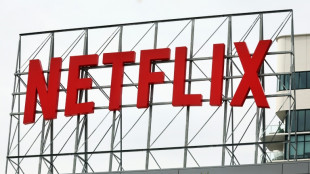 Netflix seeks 'Money Heist' successor in Spanish hub
Netflix seeks 'Money Heist' successor in Spanish hub
-
Taiwan running out of time for satellite communications, space chief tells AFP

-
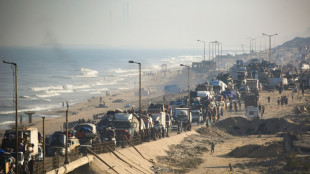 Gaza, Palestinian future to dominate UN gathering
Gaza, Palestinian future to dominate UN gathering
-
Young plaintiffs stand tall after taking on Trump climate agenda in court

-
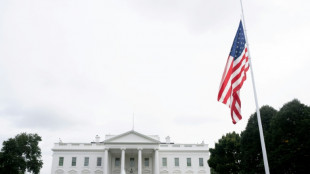 Kirk killing sparks fierce US free speech debate
Kirk killing sparks fierce US free speech debate
-
Eying bottom line, US media giants bow to Trump

-
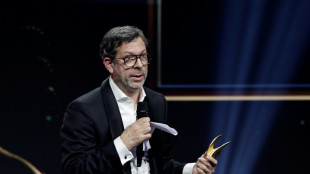 Indie studio bets on new game after buying freedom from Sega
Indie studio bets on new game after buying freedom from Sega
-
Marseille hoping to catch PSG at the right time in Ligue 1

-
 Japan inflation slows in August, rice price surges ease
Japan inflation slows in August, rice price surges ease
-
Court seizes assets of Maradona's lawyer, sisters in fraud case

-
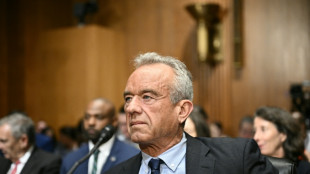 RFK Jr panelists make initial changes to childhood vaccine schedule
RFK Jr panelists make initial changes to childhood vaccine schedule
-
Progress stalled on Canada's pollution reduction goal

-
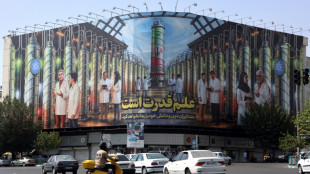 UN Security Council votes on reimposing Iran nuclear sanctions
UN Security Council votes on reimposing Iran nuclear sanctions
-
Depleted France eager to 'throw sand in England's machine' in World Cup semi-final

-
 Barcelona beat Newcastle, Man City see off Napoli in Champions League
Barcelona beat Newcastle, Man City see off Napoli in Champions League
-
Texans' Ward won't face domestic violence charges

-
 Alcaraz headlines Team Europe in Laver Cup title defense
Alcaraz headlines Team Europe in Laver Cup title defense
-
Rashford bags first Barca goals to seal win at Newcastle

-
 Haaland hits 50 Champions League goals in Man City cruise over 10-man Napoli
Haaland hits 50 Champions League goals in Man City cruise over 10-man Napoli
-
Dodgers pitching icon Kershaw to retire - club


US funding cuts could reverse decades of gains in AIDS fight: UN
The halt to US foreign aid is a "ticking time bomb" that could reverse decades of hard-fought gains in the fight against AIDS, the United Nations warned Thursday.
Around 31.6 million people were on antiretroviral drugs in 2024 and deaths from AIDS-related illnesses had more than halved since 2010 to 630,000 that year, the UNAIDS agency said in a new report.
But now infections were likely to shoot up as funding cuts have shuttered prevention and treatment programmes, it said.
The United States has been the world's biggest donor of humanitarian assistance but President Donald Trump's abrupt slashing of international aid in February sent the global humanitarian community scrambling to keep life-saving operations afloat.
"We are proud of the achievements, but worried about this sudden disruption reversing the gains we have made," UNAIDS executive director Winnie Byanyima told AFP ahead of the report's launch in Johannesburg.
The agency in April warned that a permanent discontinuation of PEPFAR, the massive US effort to fight HIV/AIDS, would lead to more than six million new infections and an additional 4.2 million AIDS-related deaths in the next four years.
This would bring the pandemic back to levels not seen since the early 2000s.
"This is not just a funding gap – it's a ticking time bomb" whose effects are already felt worldwide, Byanyima said in a press release.
Over 60 percent of all women-led HIV organisations surveyed by UNAIDS had lost funding or had to suspend services, the report said.
In a striking example, the number of people receiving pre-exposure prophylaxis (PrEP) drugs to prevent transmission in Nigeria fell by over 85 percent in the first few months of 2025.
The "story of how the world has come together" to fight HIV/AIDS is "one of the most important stories of progress in global health," Byanyima told AFP.
"But that great story has been disrupted massively" by Trump's "unprecedented" and "cruel" move, she said.
"Priorities can shift, but you do not take away life-saving support from people just like that," she said.
- Key medical research affected -
Crucial medical research on prevention and treatment have also shut down, including many in South Africa which has one of the highest HIV rates in the world and has become a leader in global research.
"Developing countries themselves contribute very much towards the research on HIV and AIDS, and that research serves the whole world," Byaniyma said.
In 25 out of 60 low- and middle-income countries surveyed by UNAIDS, governments had found ways to compensate part of the funding shortfall with domestic resources.
"We have to move towards nationally-owned and financed responses," Byaniyma said, calling for debt relief and the reform of international financial institutions to "free up the fiscal space for developing countries to pay for their own response".
Still, the global HIV response built from grassroots activism was "resilient by its very nature", she told AFP.
"We moved from people dying every single day to now a point where it is really like a chronic illness," she said.
"There is no question that the investment has been worth it, and continues to be worth it. It saves lives."
T.Zimmermann--VB

